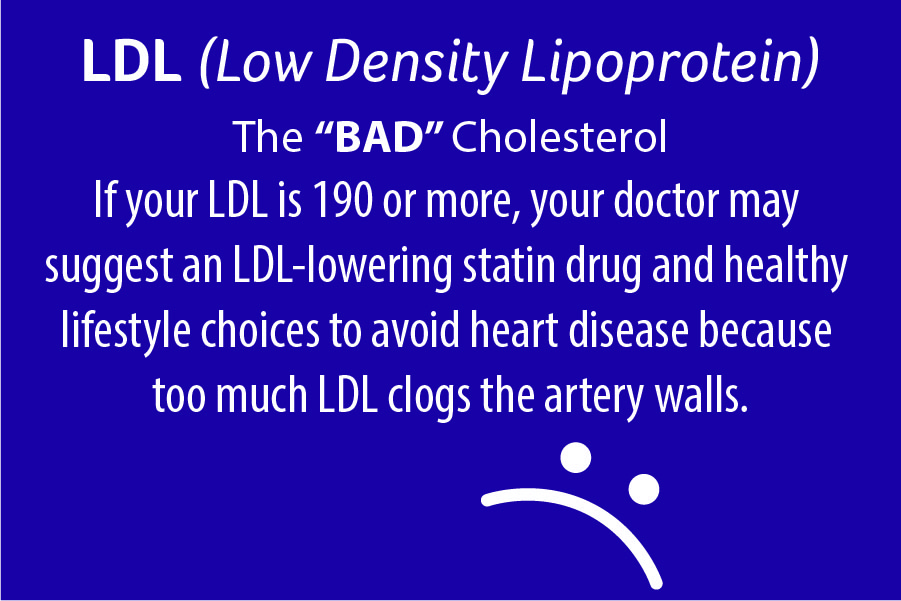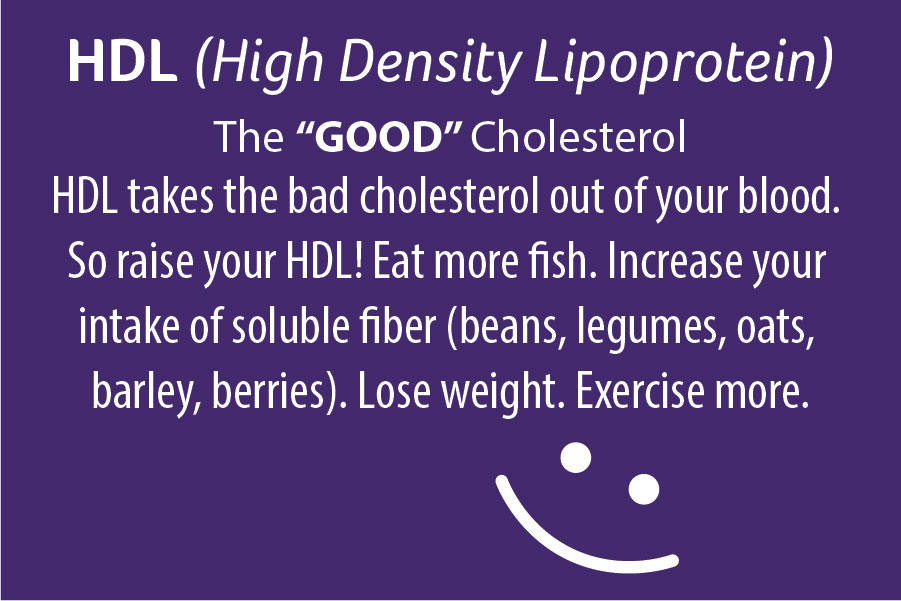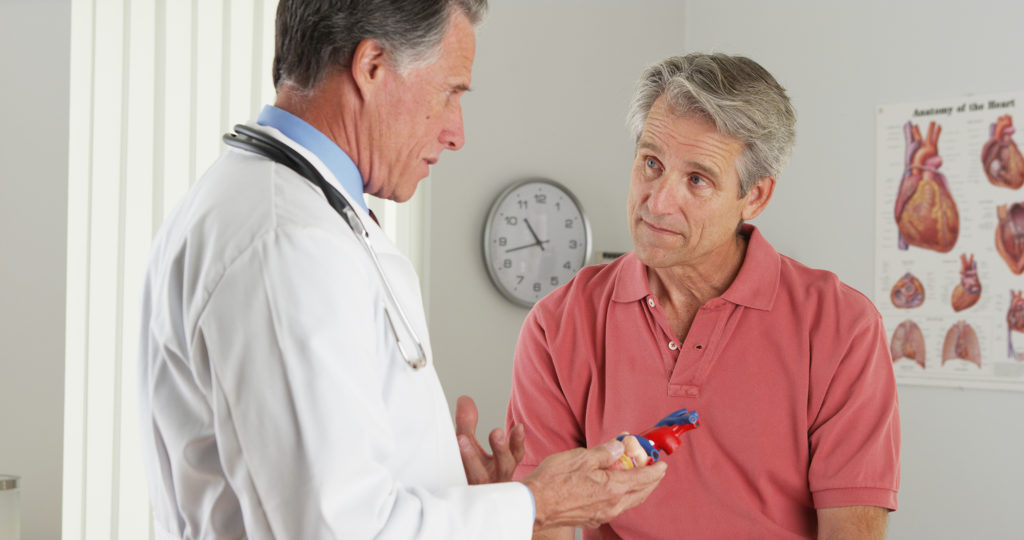Cardiovascular Health
Though any aerobic exercise is good for your heart, these five physical activities are top-notch for heart health. Be sure to warm up before aerobic exercise by stretching and allow some “cool-down” time after.
- Brisk walking
- Running
- Swimming
- Cycling
- Interval or circuit training
Cardiovascular Disease
Cardiovascular disease includes numerous problems of the heart and blood vessel system. A lot of cardiovascular disease is related to atherosclerosis, called coronary artery disease. We are going to focus on coronary artery disease and heart failure. But there are other cardiovascular diseases such as abnormal heart rhythms, congenital heart disease and cardiomyopathies (enlarged heart).
Coronary Artery Disease (CAD)
CAD is often called hardening of the arteries or atherosclerosis. The arteries give the heart vital oxygen and nutrients. When your body has too much LDL ( low density lipoprotein) cholesterol, it can build up on the walls of your blood vessels. This buildup is called “plaque.” As your blood vessels build up plaque over time, the insides of the vessels narrow.When this happens, it’s harder for blood to flow through, potentially causing a clot. If a blood clot forms, it can stop blood flow and cause a heart attack or stroke.
Omega 3 Fatty Acids are Good for Your Heart
Omega-3 fatty acids may decrease triglycerides (fat in the blood), lower blood pressure slightly, reduce blood clotting, decrease stroke and heart failure risk and reduce irregular heartbeats.
Heart Failure
The term can be frightening. It doesn’t mean the heart has “failed,” or stopped working. It means the heart doesn’t pump as well as it should. This will cause you to retain salt and water, which will give you swelling and shortness of breath. Heart failure is a major health problem in the U.S., affecting more than 6.5 million Americans. It is the leading cause of hospitalization in people older than age 65. Heart failure cannot be cured. So you should see your doctor and follow his advice on taking prescriptions and improving your diet. Depending on the cause of your heart failure, surgery may or may not be appropriate.









Comments are closed.